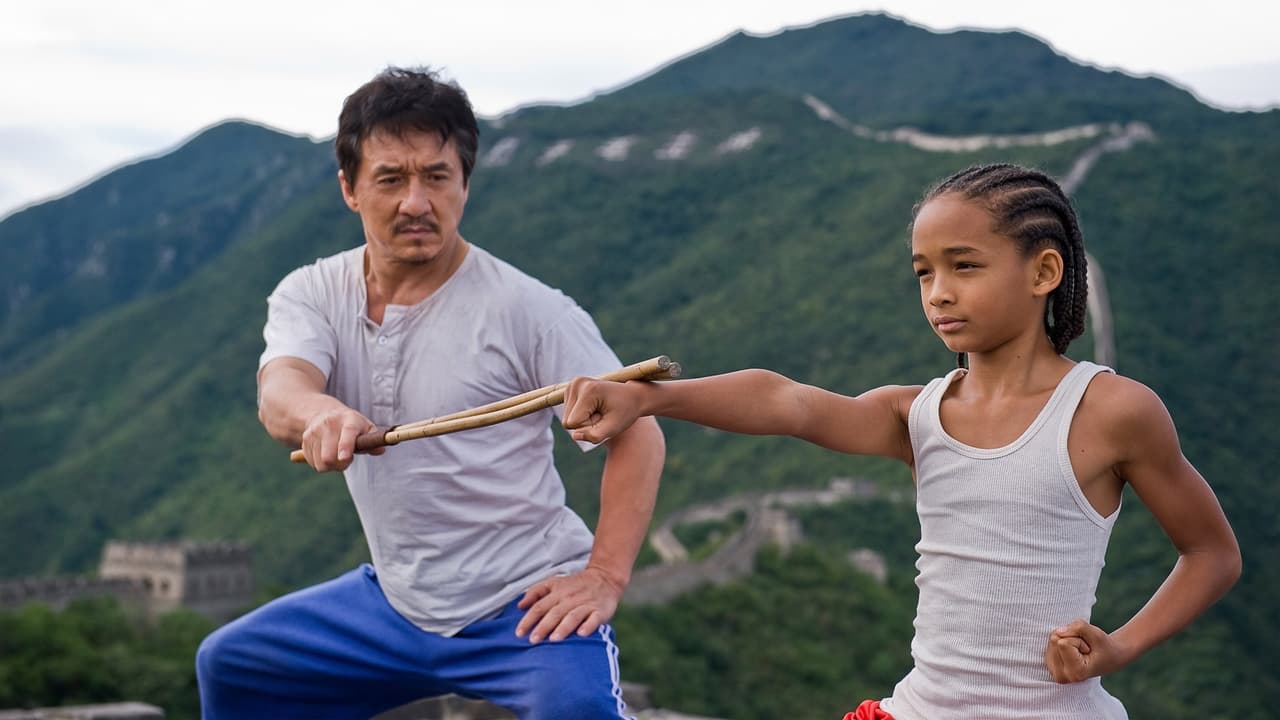The Fresh Take on an Iconic Classic: The Karate Kid 2010 Movie Review
Ever since Harald Zwart unveiled his 2010 rendition of the legendary cinematic tale, The Karate Kid, moviegoers have found themselves on an emotional and action-packed journey from the sunny streets of America to the bustling cityscapes of China. Starring the talented Jaden Smith and legendary Jackie Chan, this action-drama-family spectacle not only reimagines a beloved story but brings a fresh perspective that's as engaging as it is heartwarming, making it a must-watch film in this genre. Join me as I dive into this cinema analysis of a movie that pushes beyond just punches and kicks.
A Young Boy's Quest in an Exotic Landscape
The narrative of the new The Karate Kid (2010) is a vibrant tapestry depicting a young boy's journey to discover himself under unusual circumstances—a plot that peels off layers of the human spirit like the most engaging YA novels. As young Dre Parker, played with a touch of both youthful innocence and tough resilience by Jaden Smith, weaves through the arc of his story, he embodies what countless others have felt moving to a foreign land: fear, excitement, and the daunting joy of starting anew. When work leads his single mother, portrayed by the vivacious Taraji P. Henson, to relocate from Detroit to China, Dre's universe spirals from familiar schoolyards to foreign markets.
Struggling to fit in, Dre's initial encounter with local bullies sets the stage for a redemptive journey. Enter Mr. Han, Jackie Chan’s character, who proves to be more than just a maintenance man with a knack for fixing taps. A fallen Kung Fu master, Han unlocks the hidden strength within Dre using ancient Chinese wisdom and sheer patience—because, let's face it, for most pre-teens, patience is about as common as unicorns. The film's themes resonate universally, introducing viewers to an emotional rollercoaster of courage, friendship, and tenacity—timeless values that many family films strive to capture.
A Dynamic Display of Dramatic and Martial Arts Prowess
It's not just the gripping story that leaves audience members clutching their popcorn a little tighter. Zwart has crafted a visually mesmerizing and emotionally fulfilling piece of cinema that captivates from start to finish. Staying true to the essence of the story while integrating Chinese culture in meaningful, profound ways, the film builds upon its predecessor's legacy while offering something completely new—like switching out raisins for chocolate chips in cookies (try it, you'll thank me).
One of the film's shining jewels is the incredible Jackie Chan, who brings unprecedented depth and emotionality to Mr. Han. Gone are the purely slapstick antics one might expect from Chan's earlier works. Instead, his poised portrayal is a testament to his range and maturity as a seasoned actor, engaging audiences with a soft grace rather than high-octane theatrics.
Jaden Smith, stepping out of the sizable shadow cast by his famous father, Will Smith, packs a punch—literally and metaphorically. He drives the film’s narrative momentum with a perfomance that's both earnest and raw, depicting Dre's struggles and triumphs with the delicate balance of a tightrope walker. Moreover, the chemistry between Smith and Chan translates an authentic student-mentor dynamic that breathes life into the journey they share—highlighting that in this school of life, we all have something to teach each other.
Seeing Kung Fu Through a Fresh Lens
While the film breathes new life into a classic tale, it wisely avoids a common pitfall of reboots: watering down the original’s essence. The decision to swap karate for Kung Fu initially raised eyebrows, akin to recasting James Bond as an animated penguin. But trust me when I say, it works. The direction, a perfect blend of aesthetically impactful and spiritually evocative, allows audiences to marvel at the stunning spectacles of Chinese landscapes as Dre and Han's story unfolds.
Christopher Murphey and Robert Mark Kamen’s screenplay deserves kudos for striking that perfect balance between running the risk of becoming cliché and delivering dialogue that is both relatable and insightful. Cinematographer Roger Pratt’s keen eye captures the scarcely seen elegance of China’s alleys, temples, and mountains in a way that turns setting into a character all its own.
A Comparison of Cross-Cultural Classics
Reboots often take beloved classics and paint them with a modern brush, and The Karate Kid 2010 is no exception. But unlike many reboots that fall flat (looking at you, certain 80s TV show remakes), this film seriously contends for a spot among the best family and sport movies of the decade. Its tapestry echoes hints of classics like 'Dances with Wolves' for its immersive cultural exploration and 'Rocky' in its underdog determination.
Comparing this masterpiece to the original can be seen as a testimony to changing societal dynamics. While the core remains about self-discovery and perseverance, the backdrop of China as opposed to California introduces audiences to a medley of vibrant cultures and philosophies. It's a smart move that aligns with the wave of increasing diversity in modern cinematic storytelling.
Why This Film Belongs on Your Watchlist
In a world brimming with cinematic choices, The Karate Kid (2010) rises as a shiny beacon of inspiration—a film that beckons you to embark on a journey of discovery not only through cultural rhythms but through the depth of human bonds and aspirations. It's a film critique that twists the tales of bullying, resilience, and redemption into a powerful tapestry imbued with heart and energy.
If you have a penchant for compelling drama, breathtaking action, and a pinch of family warmth, this movie review assures you that The Karate Kid will not only capture your heart but give it a little karate chop of its own. So, signal your streaming service of choice, grab a bucket of popcorn, and dive into this modern classic. Harald Zwart’s masterpiece awaits!

